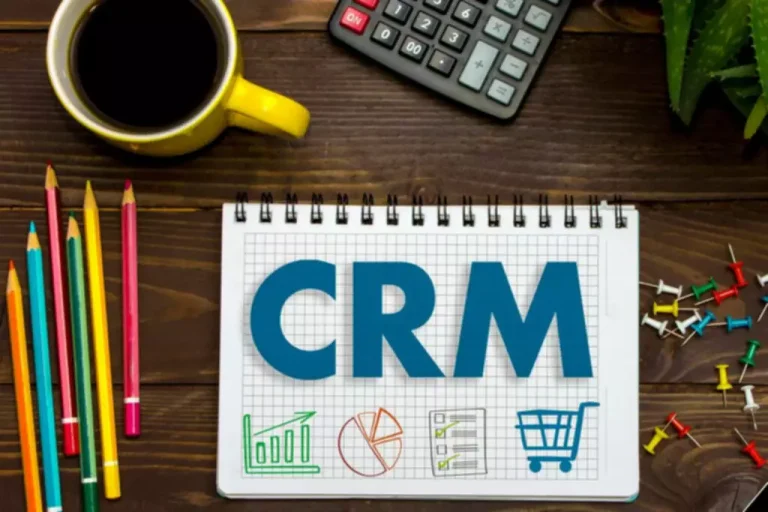Content
Comparing commodities vs securities helps traders make informed decisions about their portfolios. Commodities are often traded on https://www.xcritical.com/ futures exchanges, where investors buy and sell contracts based on the anticipated future value of the commodity. The prices of commodities are largely driven by supply and demand factors.

Key Differences Between Commodities and Securities
Let’s further break down these criteria to properly explain how the Howey test works. The Howey Test is a set of criteria that determines if an asset should be classified as a security or commodity in the United States. Here’s a simpler way to think of the difference between a security vs. commodity. Securities often represent the end product, while commodities are the building blocks of that product. There’s also credit risk, particularly for bond investors, where the issuer might fail to make interest or principal payments. This ease of transfer increases the liquidity of securities, making them an attractive option for is bitcoin a security or commodity investors.
Final Words on Security vs Commodity: Which One is Better to Trade?
If a trade goes against you, you could lose your initial deposit and more before you have time to close your position. Moreover, securities generally comprise Cryptocurrency stocks, bonds, mutual funds, and exchange-traded funds (ETFs). However, the legal implication of security is much broader as it also includes a contract for selling agricultural land. Likewise, corporations issue shares to raise capital from the public by issuing securities.
How confident are you in your long term financial plan?
You should also consider the tax implications of your investments, as these can vary depending on your country of residence. The primary difference between commodities and securities lies in their nature. Commodities are basic goods used in commerce that are interchangeable with other commodities of the same type.
- Commodity refers to a tangible good, such as oil, gold, or agricultural products, that can be bought and sold in markets.
- The Securities and Exchange Commission (SEC) of the U.S. is charged with overseeing securities markets to protect investors, ensure fair and efficient markets, and promote capital formation.
- ICO, TGE and public sales all create more risk, especially if no KYC/AML was completed.
- Relatedly, traders must fulfill routine reporting on their activities above a specified volume threshold, disclosing insightful data such as account identity, controlled accounts and opening or closing positions.
- A crucial characteristic of a security is the legal claim it provides to the owner.
- There are different forms of crowdfunding, e.g. equity crowdfunding, where investors receive shares in the company, or debt crowdfunding, where investors lend money directly to the start-up.
From a Commodity perspective, they resemble digital representations of traditional assets, facilitating easier trading and minimising exposure to Crypto market fluctuations. Fungibility refers to the interchangeability of units within a Currency, where each unit is identical and interchangeable with others. In Cryptocurrencies, digital assets like Bitcoin, fungibility ensures that each unit holds the same value and can be exchanged without distinction, ensuring transactional anonymity and maintaining market liquidity. And as you can gather, with a virtual Currency this definition or distinction is challenging. This distinction affects Crypto tokens regulatory oversight, market dynamics, and trading strategies. Securities are subject to strict regulations, while Commodities, including Cryptocurrencies, are less regulated and more volatile.

The debate over Cryptocurrency regulation is ongoing, highlighting the need for clear guidance to address jurisdictional challenges and investor protection concerns. The classification of NFTs as Securities is debated, considering investor expectations and profit motives. Some argue NFTs, representing unique digital assets, lack the profit-sharing or investment features of Securities. The difference between a Security and a Commodity lies in their fundamental nature and regulatory treatment. Securities represent ownership in a company or entity and are subject to stringent regulations aimed at investor protection. Yes, certain securities are able to be resold without registration under certain conditions as per the country’s securities laws in India.
Securities tend to enjoy more widespread exchange availability and near-continuous price discovery. Securities, on the other hand, grant holders the right to periodic benefits like dividends, coupons, principal repayments and potential profit shares. In the cryptocurrency industry, these benefits could come in the form of capital appreciation or airdrops. In layman’s terms, a security should produce a return to a common enterprise usually in the form of a percentage of the potential profit the common enterprise generates.
Cryptocurrencies, like Bitcoin and Ethereum, possess traits akin to Commodities. They’re tradable assets, lack legal tender status, and operate in decentralised networks. Regulators, such as the US CFTC, classify certain Cryptocurrencies as Commodities due to their market functions and fungibility. Bitcoin is classified as a commodity by the Commodity Futures Trading Commission (CFTC). Its decentralized nature and lack of ties to a corporation differentiate it from traditional securities.
Many of the U.S. congressional efforts have focused on granting the CFTC wider latitude to regulate spot trading of the non-securities tokens, of which bitcoin is so far the only one openly agreed on by both agencies. If a cryptocurrency is a security, cryptocurrency issuers and exchanges must seek the necessary licenses from their securities regulators. This is usually pretty difficult to do, so the crypto industry spends a huge amount of effort trying to ensure that cryptocurrency sales and developments avoid securities laws. The value of a commodity is determined by a range of factors, such as geopolitical events, weather patterns, natural disasters, and technological advancements. The demand for a commodity is also affected by the state of the global economy, inflation rates, and interest rates.
The requirement varies based on both brokerages and security being traded. Employee Stock Option Plans (ESOPs) are another way for start-ups to raise capital. Start-ups often offer their employees stock options at predetermined prices, often below market levels.
Instead, ownership is determined by possession of the physical certificate. They are transferred by simply handing over the certificate to the new owner. A security is a financial instrument that represents an ownership position, a creditor relationship, or rights to ownership. A commodity is a basic good used in commerce that is interchangeable with other goods of the same type. Commodities are physical products that are meant to be consumed or used in the production process. Assets, on the other hand, are goods that are not consumed through their use.
Thanks to options, contracts, and commodity funds you don’t need to purchase physical commodities. You can select which areas you’d like to target, based on whether you prefer hard vs. soft commodities. Commodities are tangible goods traded based on supply and demand dynamics, while securities represent ownership in companies or governments and are influenced by financial health indicators.
With commodities, you’re most often trading futures or options contracts with an underlying raw material or good, such as pork bellies, oil, or aluminum. With securities, you’re typically buying shares of a company or funding bonds with the expectation of earning interest. On the other hand, securities represent financial instruments such as stocks, bonds, or derivatives that offer transferability, legal ownership, and potential returns through investment and speculation. A commodity pool operator (CPO) is a person or limited partnership that collects funds from investors and pools these resources to put into futures contracts and options.
The first step is to open a brokerage account with a reputable firm that fits their needs and preferences. The next step is to fund the account by transferring money from their bank account. Investors then research potential investments by analyzing financial statements, market trends, and other factors to identify opportunities. Investors place an order specifying the security, order type, and quantity. But investors monitor their investments regularly and make adjustments as needed to ensure the investment meets their requirements and stays valid.
While you cannot use mutual funds to invest directly in commodities, these funds might have holdings in commodity-related industries, such as energy, agriculture, or mining. Like the stocks they invest in, the mutual fund’s shares are affected by factors beyond just changes in the commodity’s price, including more general changes in the stock market and company-specific factors. Commodity ETFs tend to track the price of a particular commodity or a group of them using futures contracts.
